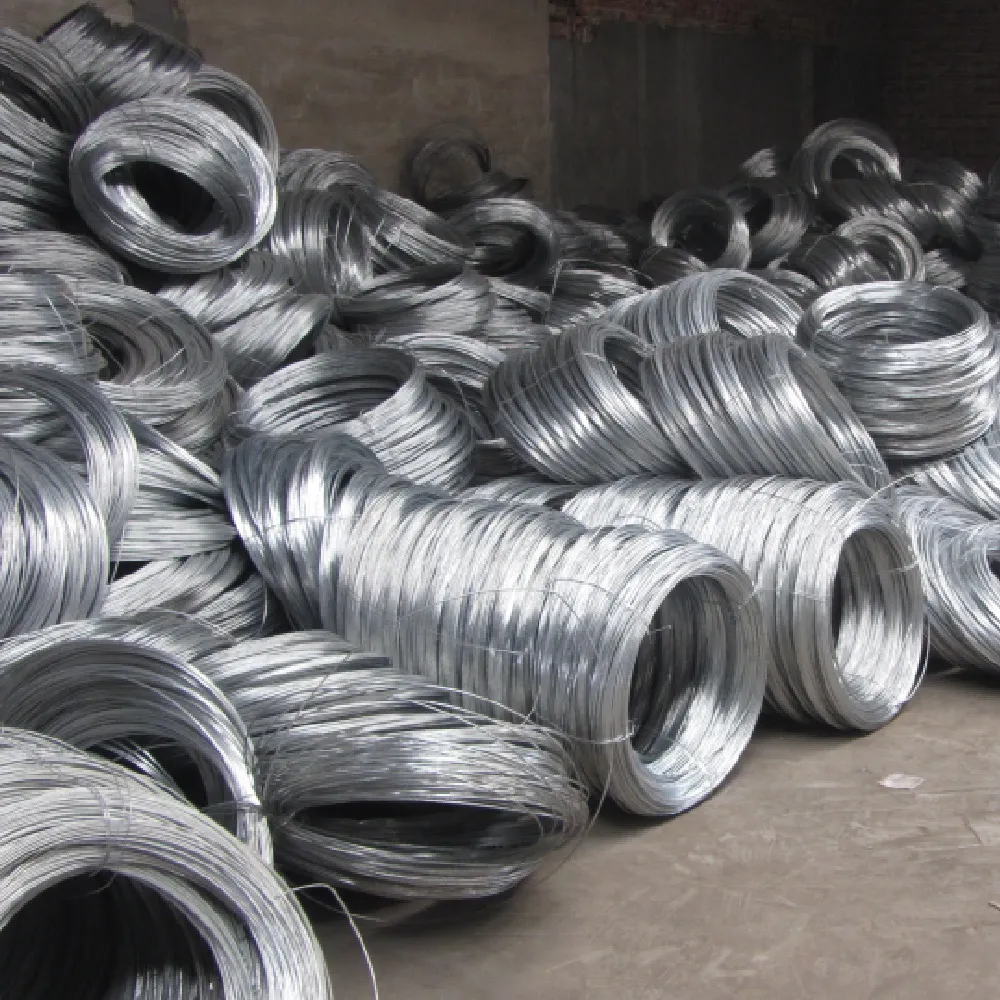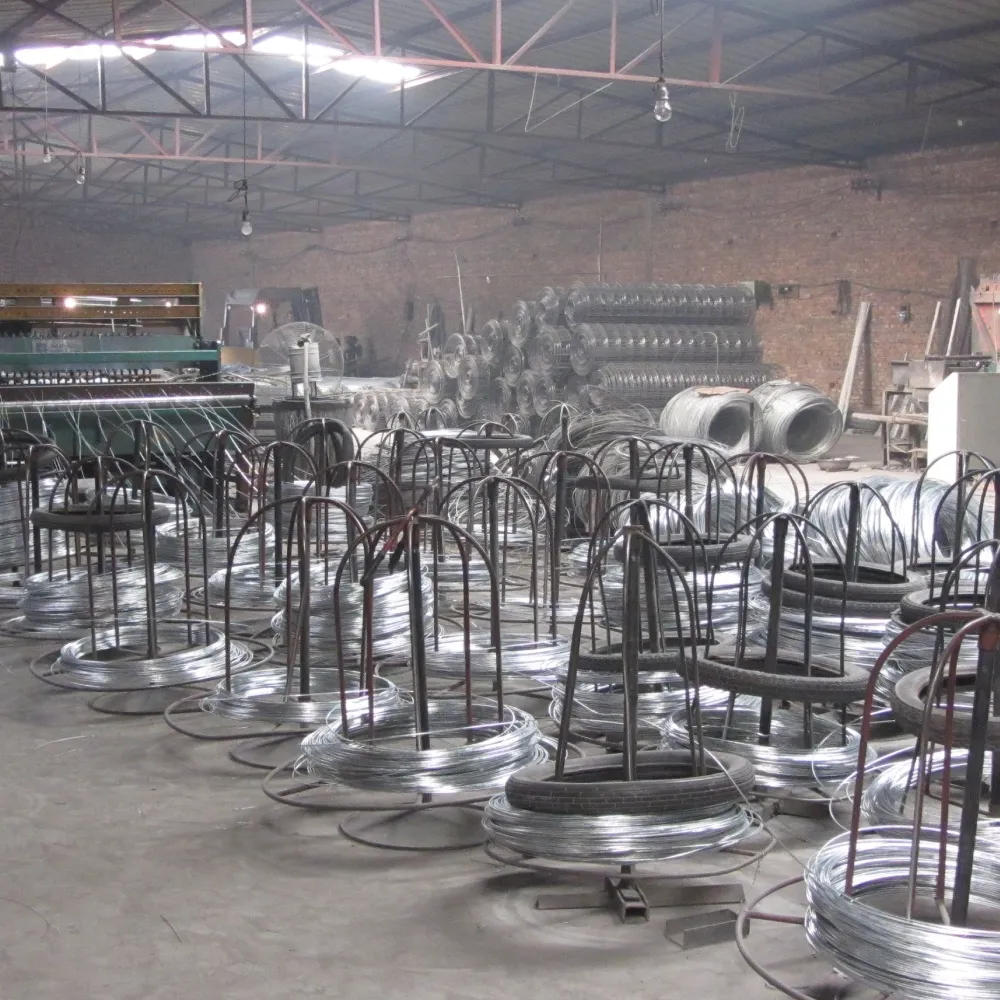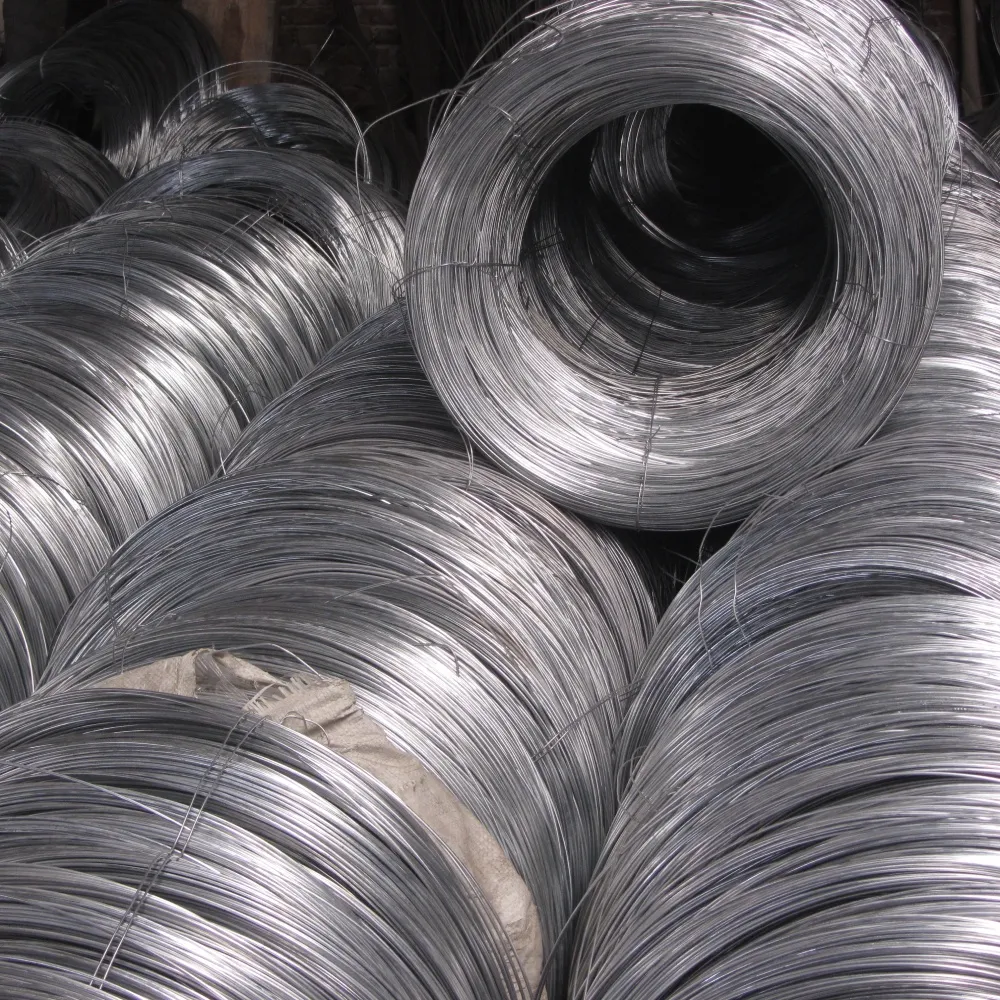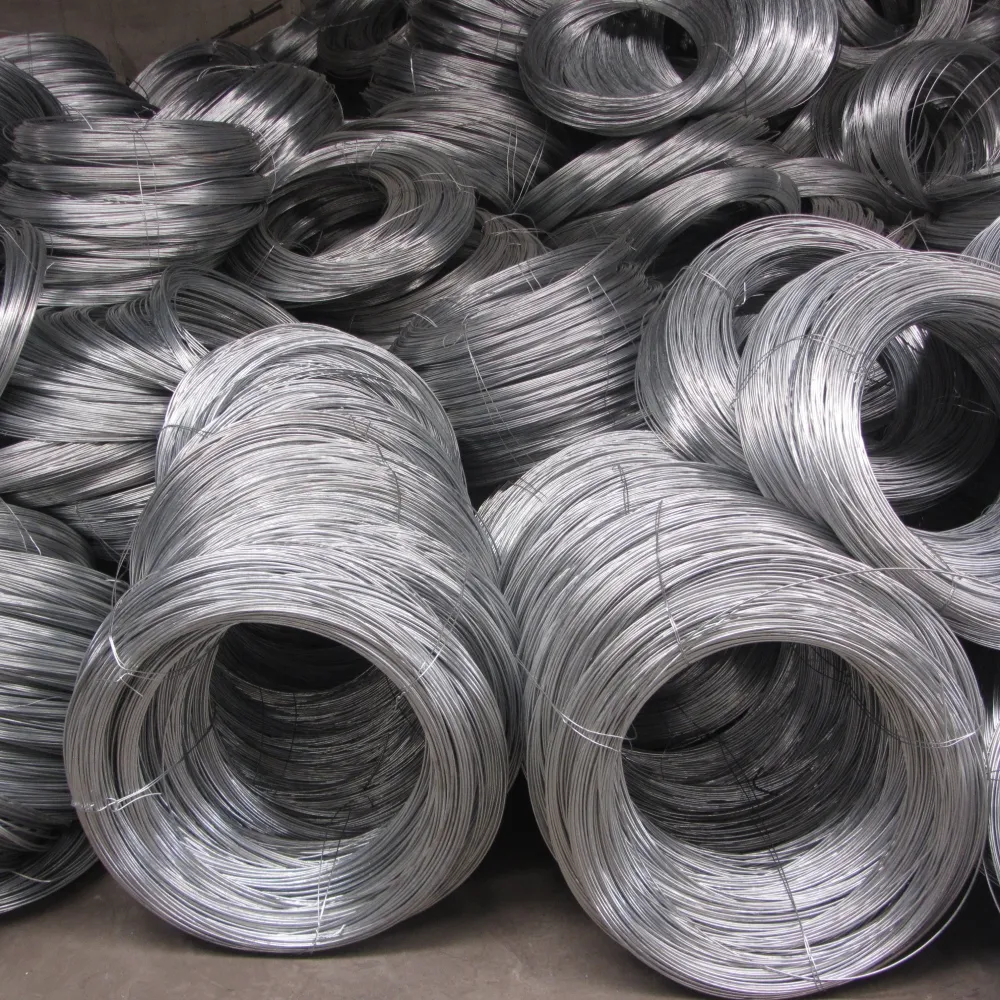In the demanding landscape of modern industry, the choice of materials profoundly impacts durability, performance, and cost-effectiveness. Among the most versatile and resilient options, galvanized wire material stands out as a foundational component across numerous sectors. Renowned for its exceptional corrosion resistance and high tensile strength, it addresses critical requirements where exposure to harsh environmental conditions or mechanical stress is a constant. This comprehensive guide delves into the intricate world of galvanized wire, exploring its manufacturing excellence, technical specifications, diverse applications, and the factors influencing its market dynamics, including the competitive galvanized wire mesh price. Our aim is to provide B2B decision-makers and technical professionals with the insights needed to make informed procurement choices, ensuring optimal performance and longevity for their projects.
The market for galvanized wire is experiencing consistent growth, driven by expansion in infrastructure development, agricultural advancements, and heightened demand for durable fencing and protective solutions globally. Industry reports project a steady Compound Annual Growth Rate (CAGR) for galvanized wire products, highlighting its indispensable role in global economic progress. The strategic adoption of high-quality galvanized wire translates into significant long-term savings by minimizing maintenance and replacement costs. Understanding the nuances of this material is key to leveraging its full potential in various industrial and commercial applications, ensuring unparalleled longevity and reliability in every project.
The superior performance of galvanized wire material stems directly from a meticulously controlled manufacturing process designed to impart maximum durability and corrosion resistance. This process typically begins with high-quality carbon steel rods, which undergo a series of transformations to become the finished product. The core steps include precision wire drawing, thorough cleaning, optional annealing for enhanced ductility, advanced galvanization, and rigorous quality inspection. Each stage is critical in shaping the wire’s mechanical properties and protective capabilities.
First, Wire Drawing reduces the steel rod’s diameter through a series of specialized dies, progressively increasing its tensile strength and creating a uniform, precise profile. This mechanical cold-working process is fundamental for achieving the desired wire gauge and strength characteristics. Following this, Surface Preparation involves extensive cleaning, typically through pickling with acids, to meticulously remove scale, rust, and any surface impurities that could compromise the zinc coating's adhesion. For applications requiring increased ductility and flexibility, an Annealing process may be introduced, where the wire is heated and slowly cooled to recrystallize its internal structure. The most crucial step, Galvanization, involves dipping the cleaned wire into a bath of molten zinc (hot-dip galvanizing) or electroplating it with zinc (electro-galvanizing). Hot-dip galvanizing creates a robust metallurgical bond between the steel and zinc, forming a highly durable, sacrificial layer that protects the underlying steel from rust even if scratched, offering superior longevity.

Throughout the entire manufacturing journey, strict adherence to international standards such as ISO 9001 for quality management and specific product standards like ASTM A641 (Standard Specification for Zinc-Coated (Galvanized) Carbon Steel Wire) and EN 10244-2 (Steel wire and wire products — Non-ferrous metallic coatings on steel wire — Part 2: Zinc or zinc alloy coatings) is paramount. These standards dictate precise parameters for zinc coating weight, tensile strength, and wire diameter, ensuring consistent product quality and reliable performance across various demanding applications, from heavy-duty construction to intricate agricultural installations, demonstrating verifiable expertise in material science.
Understanding the detailed technical specifications of galvanized wire material is crucial for selecting the appropriate product for specific industrial applications. These parameters directly influence the wire's performance, longevity, and suitability for various environments, enabling precise engineering and optimal material utilization.
Wire Diameter: Measured in millimeters (mm) or gauge (e.g., BWG - Birmingham Wire Gauge), this dictates the wire's thickness and, consequently, its inherent strength and flexibility. Common diameters range from 0.5mm to 5.0mm, catering to diverse needs from fine mesh weaving to heavy-duty industrial binding. Tensile Strength: Expressed in N/mm² (Newtons per square millimeter) or MPa (Megapascals), this property indicates the maximum stress the wire can withstand before breaking. For typical galvanized wire, tensile strength can range from 350 N/mm² for soft annealed wire to over 900 N/mm² for high-tensile variants used in structural applications. Zinc Coating Thickness (or Weight): This is perhaps the most critical parameter for corrosion resistance, precisely measured in g/m² (grams per square meter). A thicker, more uniform zinc coating provides extended protection, directly correlating with a longer service life, particularly in harsh, corrosive environments like coastal regions. Typical coatings might range from 30 g/m² for electro-galvanized wire up to 300 g/m² or more for heavy hot-dip galvanized wire. Elongation: Represented as a percentage, this measures the wire's ability to stretch plastically before fracturing. Higher elongation indicates greater ductility, an essential characteristic for applications requiring significant bending, knotting, or shaping without brittle failure.

These detailed specifications allow engineers and procurement professionals to precisely match the galvanized wire to the specific demands of their projects, optimizing for factors such as structural integrity, environmental exposure, and ease of handling. Products like our Galvanized Wire are engineered to meet or exceed these stringent industry benchmarks, offering unparalleled reliability and consistent performance, a testament to our profound expertise in material engineering.
The inherent properties of galvanized wire material, primarily its exceptional corrosion resistance and robust mechanical strength, make it indispensable across a multitude of industries. Its versatility ensures its application in areas where traditional steel wire would quickly succumb to rust and degradation, offering a long-term, low-maintenance solution that proves its real-world experience and value.
In the Construction Sector, galvanized wire is extensively used for tying rebar, constructing gabion baskets for erosion control and retaining walls, and forming durable security fencing. Its ability to withstand weathering and structural stress ensures the integrity and longevity of critical infrastructure and civil engineering projects. For example, in coastal regions, where salt spray accelerates corrosion dramatically, the protective zinc layer significantly extends the lifespan of fencing and structural ties from years to decades. The Agricultural Industry relies heavily on galvanized wire for robust vineyard trellises, efficient baling wire, secure livestock enclosures, and reliable crop support systems, where constant exposure to moisture, chemicals, and manure demands highly durable materials. Its resistance to rust ensures that essential farm infrastructure remains intact for extended periods, substantially reducing replacement costs and maintenance efforts, proving its practical utility.

Furthermore, the Manufacturing Industry consistently utilizes galvanized wire material in the production of high-performance wire mesh, resilient springs, sturdy hangers, and various binding applications that require unwavering strength and corrosion resistance. The consistent quality and robust properties ensure smooth manufacturing processes and high-quality end products, which are vital for complex industrial operations. The market for galvanized wire mesh price is often influenced by the cost of the underlying galvanized wire; however, the exceptional longevity and minimal maintenance requirements of such mesh often translate to significant long-term savings compared to ungalvanized alternatives, demonstrating a clear economic advantage. Other critical applications include use in challenging petrochemical installations for conduit or protective measures, and in general industrial binding and securement where material integrity cannot be compromised. The primary advantages include superior corrosion resistance, which dramatically extends the product's lifespan; enhanced strength and durability, capable of withstanding significant loads and environmental stresses; and outstanding cost-effectiveness, as the extended service life and reduced maintenance requirements provide a much lower total cost of ownership over time.
Selecting the optimal galvanized wire material involves more than just reviewing standard specifications; it requires a nuanced understanding of application-specific needs and the proven capabilities of potential suppliers. The critical distinction between hot-dip galvanized wire and electro-galvanized wire, for instance, significantly impacts performance characteristics and overall cost-efficiency. Hot-dip galvanization provides a much thicker, exceptionally durable zinc coating, offering superior, long-lasting corrosion resistance essential for outdoor or harsh industrial environments, albeit at a slightly higher initial galvanized wire mesh price. Conversely, electro-galvanized wire, while offering a thinner and more aesthetically uniform coating, is generally more suitable for indoor applications or where a lighter protective layer suffices, often chosen for its smoother finish.
When considering vendors for galvanized wire for sale, it is crucial to evaluate their expertise in producing wires that consistently meet stringent international standards and their capacity for technical customization. Key factors to assess include the consistency and integrity of their galvanization process, their proven ability to precisely customize parameters such as tensile strength, wire diameter, and coil weight to exact specifications, and their unwavering commitment to comprehensive quality assurance. A reputable manufacturer will always provide comprehensive documentation on product specifications, transparent testing methodologies, and relevant industry certifications, building immediate trust.

At Tikemetal, we specialize in providing tailored solutions for galvanized wire material. Our customization options extend to varying zinc coating weights for enhanced longevity, precise tensile strengths for specific load-bearing applications, and diverse coil packaging to optimize handling and storage logistics. We work closely with clients to thoroughly understand their unique project requirements, offering expert consultation to ensure the chosen wire type delivers optimal performance and superior cost-efficiency. Our extensive service history, spanning over two decades of delivering high-quality metal solutions, and a robust portfolio of successful projects across diverse industries underscore our undeniable authority and trustworthiness in this specialized field, making us a preferred partner for critical material sourcing.
For B2B clients, the reliability and consistent quality of galvanized wire material are absolutely paramount to project success and operational integrity. Our commitment to excellence is fundamentally underpinned by rigorous, multi-stage quality assurance protocols and internationally recognized certifications. Every batch of our galvanized wire undergoes comprehensive testing for critical parameters including tensile strength, precise zinc coating adhesion and thickness, and uniform wire diameter. These exhaustive tests are conducted in compliance with established global industry standards, providing transparent and verifiable data that instills complete confidence in our product's consistent performance. Furthermore, our manufacturing facilities are ISO 9001 certified, demonstrating our unwavering adherence to a robust quality management system that spans from stringent raw material sourcing to meticulous final product inspection, showcasing our strong authority in quality control.
We deeply understand that project timelines and material availability are critical factors for our industrial partners. Therefore, we maintain transparent and proactive communication regarding delivery cycles, aiming for highly efficient logistics to meet even the most demanding client schedules. Standard orders typically have a competitive lead time of 7-14 business days, with expedited options readily available for urgent requirements, subject to project specifics and current production capacity. Our robust quality warranty typically covers material defects and coating failures under normal usage for a period of 5-10 years, depending on the specific product grade and application environment, providing unparalleled peace of mind and demonstrating long-term value. Our dedicated and responsive customer support team is available to assist with complex technical queries, provide real-time order tracking, and address any post-purchase requirements, ensuring a seamless and satisfactory experience for our esteemed partners. This comprehensive support structure, combined with our proven track record and authoritative industry presence, makes us a highly reliable and trustworthy source for premium galvanized wire for sale.
A1: Hot-dip galvanized wire undergoes a process where the wire is immersed in molten zinc, creating a thick, metallurgically bonded coating (typically 60-300+ g/m²). This method offers superior corrosion resistance and longevity, making it ideal for demanding outdoor and harsh industrial environments. Electro-galvanized wire involves an electrolytic process, resulting in a thinner, more uniform, and often shinier zinc coating (typically 10-30 g/m²). It's generally more suited for indoor or less corrosive applications and offers a smoother, more aesthetically pleasing finish.
A2: Galvanized wire performs exceptionally well across a broad range of temperatures typically encountered in industrial and outdoor settings. The protective zinc coating generally maintains its integrity and anti-corrosive properties effectively up to approximately 200°C (392°F). Above this threshold, the zinc layer may start to degrade, potentially compromising its protective function. However, the underlying steel core's inherent properties become more critical for high-temperature applications. For extreme cold, while the wire's ductility might experience a slight decrease, its fundamental structural integrity and protective capabilities generally remain robust and intact, ensuring reliable performance in diverse climates.
A3: Yes, galvanized wire can be welded, but it requires specific precautions due to the presence of the zinc coating. Welding galvanized steel produces zinc oxide fumes, which are hazardous if inhaled. Therefore, proper ventilation, such as local exhaust ventilation systems, and appropriate respiratory protection (e.g., respirators with specific filters) are absolutely essential to ensure worker safety. Additionally, the intense heat of the welding process will inevitably burn off the zinc coating in the immediate weld area, compromising corrosion protection at that specific point. To restore effective corrosion protection post-weld, it is highly recommended to apply cold galvanizing sprays or zinc-rich paints to the affected area.
A4: The price of galvanized wire mesh is influenced by several key factors. These include the fluctuating cost of raw steel, the wire's diameter (thicker wire requires more material and thus costs more), the thickness and type of the zinc coating (heavier coatings and hot-dip methods generally incur higher costs), the specific mesh size and weave type (which affect production complexity and material usage), and the overall quantity ordered (volume discounts often apply for larger purchases). Furthermore, broader market demand, global supply chain dynamics, and transportation costs also play a significant role in determining the final galvanized wire mesh price.
The ubiquitous presence of galvanized wire material across construction, agriculture, and various manufacturing sectors unequivocally underscores its unparalleled value proposition in modern industry. Its superior corrosion resistance, impressive high strength-to-weight ratio, and extended service life make it an economically sound and technologically advanced choice for a vast array of projects demanding exceptional durability and unwavering reliability. As global industries continue to evolve and prioritize sustainable and resilient materials, the demand for high-performance solutions like galvanized wire will only continue to grow. By partnering with experienced and authoritative manufacturers like Tikemetal, B2B clients can ensure consistent access to high-quality, meticulously customized galvanized wire solutions that meet the most stringent project requirements, providing lasting performance and absolute peace of mind for critical applications.
RELATED PRODUCTS